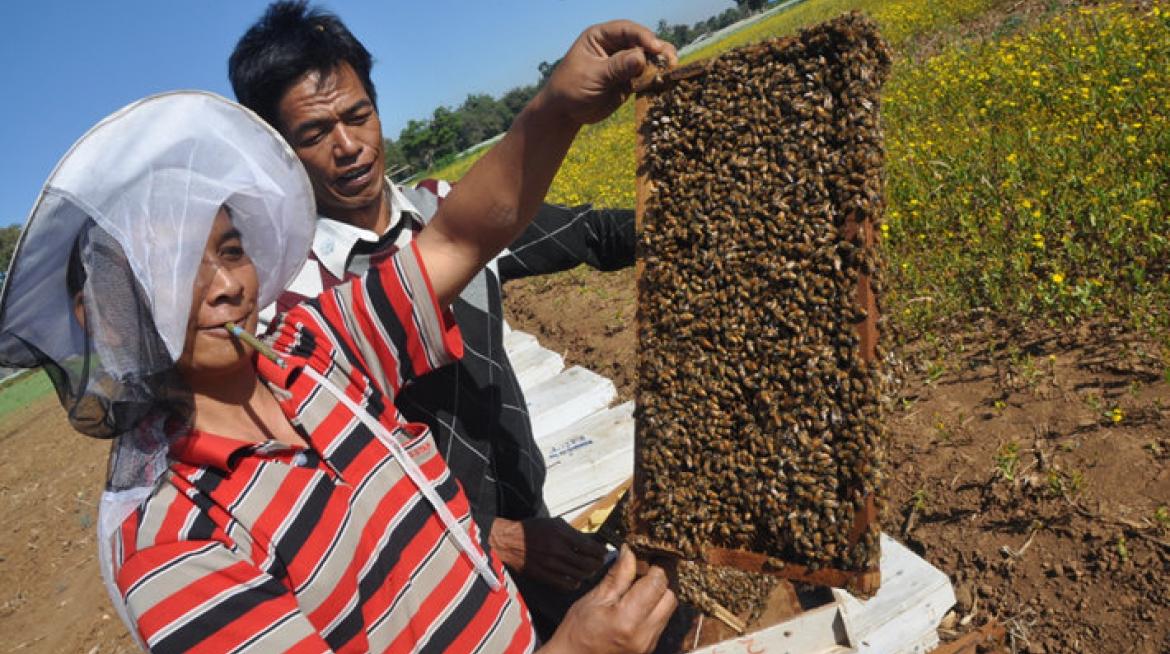
Beekeeping had never figured in 22-year old Thar Ngee’s scheme of things, writes LIFT Communications Intern Rupin Mahiyaria. He made a living away from home doing casual farm work. Things changed when Plan Bee organised an awareness-raising event in his home village. Inspired but what he learned about beekeeping as a viable business opportunity, he signed up and there has been no looking back.
After taking part in a three-week training course followed by a two month mentoring programme, Thar and his fellow trainees received their first batch of 35 beehives kits in August last year. Each beehive consists of 60,000-80,000 working bees during honey flow season. They soon discovered that beekeeping is not for everyone, however- it requires both commitment and teamwork. Of the 15 original members in the community based enterprise (CBE) which owns and manages the hives, ten members remain today. Their initial perseverance reaped rewards very quickly though- in their first honey-flow season, which takes place between October-December in Shan State, the bees produced enough honey to supply two honey extractions per week. This resulted in five-gallon containers of pure Shan honey, and an income of $900 for the 10 CBE members.
Thar Ngee insists that the bees themselves are the best teachers in teamwork. The CBE members follow their example, and efficiently divide work between themselves. They carry out different roles, ranging from bookkeeping to making candles. Once a week, four members inspect the hives. Thar Ngee himself likes handling the hives. The passion that he and his colleagues have for beekeeping is evident in how quickly they became proficient. They have also learned about queen-bee rearing, which is a highly specialised process.
“I hope we can grow the business to more than a hundred hives by ourselves, without help from other sources,” he says. “This way, we can increase the population of bees and repay the cost of beehives.” The CBE currently has 53 hives.
Beekeeping has also opened up a number of related business opportunities. Pollination services, for example, have the potential to become a new revenue stream. “One of the nearby farmers told me he’s had better mustard seeds and canola yields than in previous years,” Thar Ngee remarks.
With the continued support of Plan Bee, Thar will be able to provide evidence on the impact of pollination in neighbouring farms and thereby convince local farmers to invest in pollination service, where hives are placed in farmers field at a cost. It is a win-win situation, and the farmers are now eager to get involved. Thar Ngee says, “At mango and orange farms they want our beehives and have even offered us transportation.”
Michal Goren, the Tag Head of Operations says, “CBE’s have identified pollination as an income diversification opportunity, so Tag is conducting intensive pollination awareness training. This has led to better protection and appreciation for the bees among farmers.”
Tag is developing a Beekeeping Centre in Pindaya, Shan State that is expected to open in July 2015
See another article on Tag here


